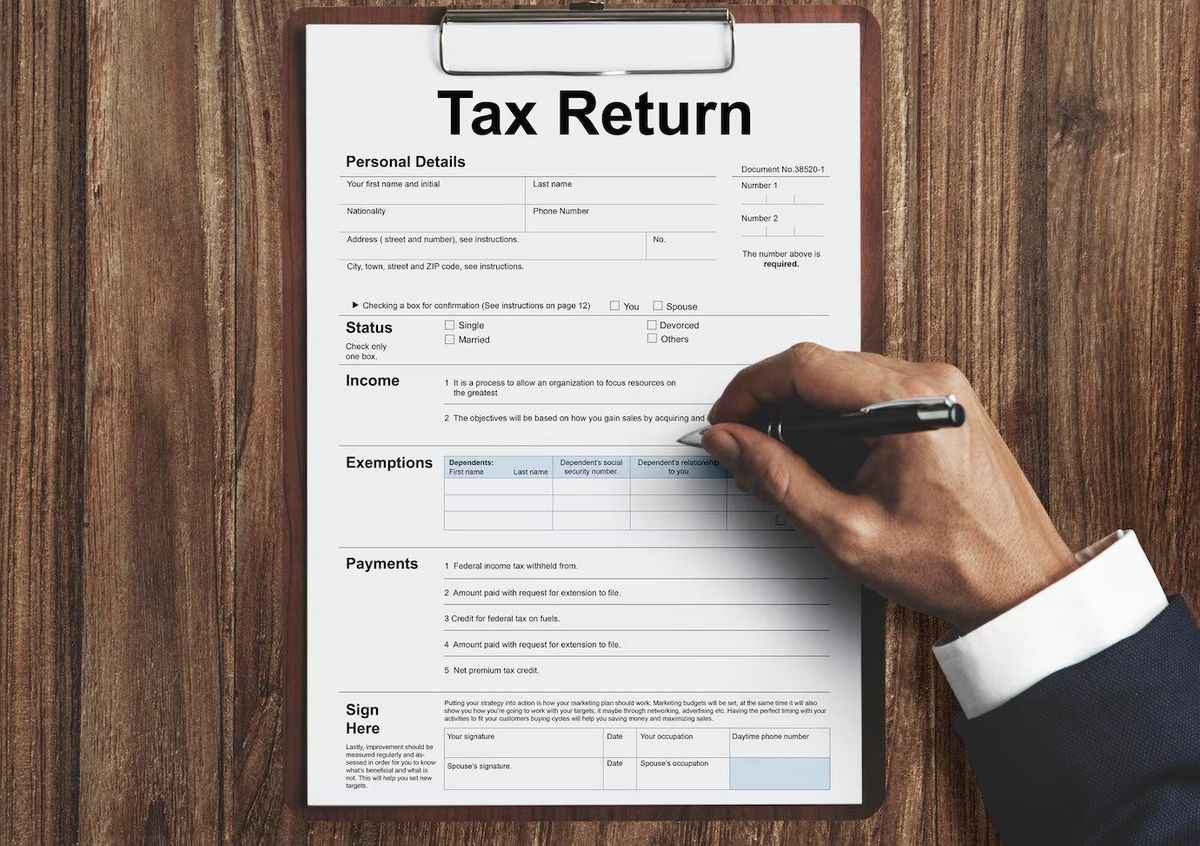
What to Consider When Choosing a Tax Resolution Service
Rock Law Firm
Dealing with tax problems can be stressful and overwhelming. When faced with mounting tax debt or IRS issues, seeking professional assistance from a tax resolution service can provide much-needed relief and help you navigate through the complexities of tax laws. However, choosing the right tax resolution service can also be incredibly challenging. However, making a well-informed decision is critical to avoiding compounding your difficulties. When selecting a tax resolution service, it is important to consider several factors, such as the company's experience and reputation, the qualifications of its staff members, pricing, and guarantees or promises made by the company. Additionally, it is essential to verify that the tax resolution service you choose has significant experience dealing with cases similar to yours and can provide references or testimonials from satisfied clients. Take your time researching potential companies and ensure you choose one that has a proven track record of success in resolving complex tax issues. This blog post aims to discuss the key factors you need to consider before selecting a Tax Resolution Service.
Key Considerations When Choosing a Tax Resolution Service
Navigating the complex world of tax resolution can be overwhelming, especially when you're seeking professional assistance. To ensure you make an informed and effective decision, there are several key considerations to keep in mind when choosing a tax resolution service.
Evaluate their expertise and specialization: Tax resolution is a specialized field that requires in-depth knowledge of tax laws, IRS regulations, and negotiation strategies. Look for providers who have specific experience in tax resolution and preferably hold certifications such as Enrolled Agent (EA) or Certified Public Accountant (CPA). These credentials demonstrate their expertise and commitment to upholding professional standards.
Service track record and reputation: Research their history and client reviews to gain insights into their reliability, professionalism, and success rate. Online platforms, forums, and professional associations can provide valuable information about a company's reputation. Be cautious if you come across numerous negative reviews or reports of unethical practices.
Verify the legitimacy and credibility of the service: Check whether they are registered with appropriate regulatory bodies, such as the Better Business Bureau (BBB), and review any complaints or disciplinary actions against them. It is important to note that hiring a licensed attorney adds an extra layer of protection because they are subject to ethical standards.
The tax resolution service offers a communication style and individualized attention: Effective communication is crucial throughout the process to ensure clarity on your rights, obligations, and progress made in your case. A reputable service will take the time to listen to your specific situation, explain the available options, and guide you through the entire process. Avoid services that treat you like a number and provide one-size-fits-all solutions.
Evaluating a Company's Fee Structure
When considering tax resolution services, it is crucial to evaluate the fee structure of the company you are considering. What should you look for when evaluating a company's fee structure?
Transparency is key, The company should clearly outline their fees and provide you with a breakdown of how these fees are determined. Be wary of companies that base their fees on a percentage of the tax debt or make exaggerated claims about the potential amount of your tax savings. These practices can be red flags for unethical behavior.
Understand what services are included in the fee and what may incur additional charges. Some companies offer comprehensive packages that cover all aspects of the tax resolution process, while others charge additional fees for specific services such as negotiating with the IRS or preparing documentation.
Inquire about any upfront costs or retainer fees that may be required before services are rendered. While it is not uncommon for reputable firms to request an initial payment, excessive upfront costs without clear justification can be a cause for concern.
Compare the fee structures of different companies before making your final decision. While price shouldn't be the sole determining factor, it is essential to ensure that you are getting value for your money. Look for companies with competitive pricing that aligns with industry standards.
Analyzing The Tax Resolution Options Available
When facing daunting tax issues and mounting debt, understanding the various tax resolution options becomes paramount. Each option comes with its own set of implications and benefits, making careful analysis essential. Let's explore the primary tax resolution options available: payment plans, offers in compromise, and bankruptcy.
Payment Plans: A payment plan, or installment agreement, allows you to pay your tax debt over time instead of in one lump sum. This option can be an effective approach when you have the ability to make regular payments and the total tax debt is manageable. It's crucial to assess your financial capacity realistically and find a repayment plan that suits your income while ensuring compliance with IRS guidelines.
Offers in Compromise: An offer in compromise (OIC) is an agreement with the IRS that allows you to settle your tax debt for less than the full amount owed. This option is available for taxpayers who demonstrate significant financial hardship or can prove that paying the full amount would cause undue economic burden. Careful evaluation of eligibility criteria and diligent preparation of documentation are vital when pursuing this option.
Bankruptcy: Bankruptcy should be considered a last resort when no other feasible solutions exist for relieving tax debt. Filing for bankruptcy can potentially discharge certain types of tax debt, providing relief from overwhelming financial obligations. However, it's essential to consult with a knowledgeable tax professional or attorney specializing in bankruptcy law to understand the specific implications and eligibility requirements associated with this option.
Ultimately, determining the most suitable tax resolution option requires careful consideration of various factors, including your financial situation, level of non-compliance, outstanding tax liabilities, and future consequences. Seeking guidance from a qualified tax professional will provide valuable insights and ensure you make an informed decision based on your unique circumstances.
Navigating Through Payment Plans, Offers in Compromise, and Bankruptcy
When faced with mounting tax debt, it's important to explore the various options available for resolution. Three common avenues to navigate are payment plans, offers in compromise, and bankruptcy. Each approach comes with its own considerations and should be chosen based on individual circumstances.
Payment Plans
Many taxpayers find relief in setting up payment plans directly with the IRS. These plans allow individuals to make monthly payments toward their tax debt over an extended period of time. This option is particularly suitable for those who owe less than $50,000 and can afford the monthly payments without causing significant financial strain. The advantage of payment plans is that they provide a structured approach to tackling tax debt without resorting to more drastic measures.
Offers in Compromise
Offers in compromise can be considered when the taxpayer's financial situation makes it impossible to pay off the full tax debt. This option involves negotiating with the IRS to settle the debt for less than the total amount owed. To qualify for an offer in compromise, taxpayers must prove their inability to pay the full amount, either through a lump sum or through installment payments. It's worth noting that not all offers in compromise are accepted by the IRS, and it requires careful evaluation of one's financial status and documentation preparation.
Bankruptcy
Bankruptcy is generally considered a last resort when all other options have been exhausted. It should be approached with caution, as it has wide-ranging implications for an individual's financial health and credit history. Filing for bankruptcy can provide relief from certain types of tax debt, but it does not eliminate all tax obligations. Before considering bankruptcy, consulting with a qualified bankruptcy attorney is essential to understand the long-term consequences and determine if it's a viable solution for your specific circumstances.
Identifying Realistic Solutions for Tax Debt Relief
When it comes to tax debt relief, no one-size-fits-all solution exists. Identifying the most realistic and suitable option depends on several factors, including the amount owed, financial capabilities, and long-term goals. Here are some key considerations to keep in mind:
Assessing the Financial Situation
Before deciding on a particular approach, take a close look at your financial situation. Evaluate your income, expenses, assets, and liabilities to get a clear understanding of your ability to repay the tax debt. This assessment will help you determine which resolution option is most feasible for you.
Seeking Professional Advice
Navigating the complex landscape of tax debt resolution can be overwhelming. It's advisable to seek professional advice from a tax attorney, certified public accountant (CPA), or enrolled agent (EA) who specializes in tax resolution. These experts can evaluate your situation, provide personalized guidance, and help you make informed decisions regarding payment plans, offers in compromise, or bankruptcy.
Considering Long-Term Implications
When choosing a tax debt relief solution, it's vital to consider the long-term implications for your finances and credit standing. Certain options may have lasting effects on your ability to obtain credit or secure future loans. Understanding the potential consequences and discussing them with a professional can help you make an informed decision that aligns with your future goals.
Evaluating Realistic Expectations
It's crucial to set realistic expectations when seeking tax debt relief. While payment plans and offers in compromise provide manageable solutions for many individuals, they may not completely eliminate the debt or result in substantial reductions. Keep in mind that negotiations with the IRS require sound documentation and supporting evidence to substantiate claims of financial hardship.
Taking Action
Taking prompt action is essential when dealing with tax debt. Ignoring the issue will only exacerbate the problem, potentially leading to wage garnishment or the seizure of assets. By addressing the situation head-on and exploring available options, you can take control of your tax debt and work towards achieving a favorable resolution.
Experience a Path to Financial Freedom with the Rock Law Firm
At Rock Law Firm, we believe in making legal debt relief accessible to everyone. Our unique "good guy" approach allows us to open a case with no upfront charges, so you can begin your journey towards a debt-free future immediately. Trust us to handle your case with efficiency and professionalism. Schedule a legal consultation today!
